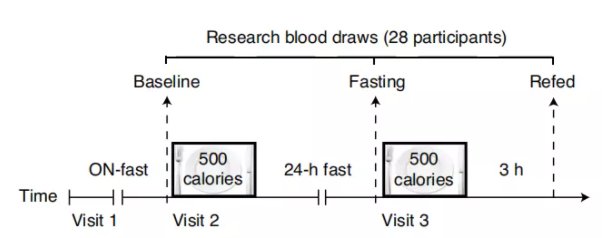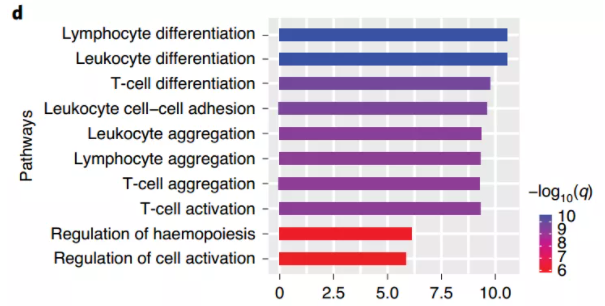The mechanism of anti-inflammation by hungry has been found!
Speaking of fasting, the first reaction of many readers may be to lose weight.
Some readers may think of the treatment of metabolic diseases and anti-aging.
But what I want to talk about today is another wonderful thing about fasting-immune regulation!
Previous studies have found that intermittent fasting can improve the inflammation of asthma and rheumatoid arthritis to a certain extent, which suggests that fasting may be used as a means to interfere with immunity. But how does fasting prevent inflammation? Scientists don't know.
Recently, the journal Nature Metabolism published research results from the research team of the National Institutes of Health. Researchers analyzed the peripheral blood mononuclear cells of volunteers after fasting and found that fasting inhibits the activation and activation of CD4+ helper T cells. Differentiation, and the longer the fasting time, the more significant the inhibitory effect.
This effect comes from the effect of fasting on the FOXO4-FKBP5 axis, which may serve as a key target for immune regulation.
In order to clarify the effect of fasting on immune cells, the researchers recruited 28 healthy volunteers, asked them to fast for 24 hours, and performed RNA sequencing and RNA sequencing on immune cells at baseline, after fasting, and 3 hours after refeeding. Immunophenotyping analysis.
This time point was chosen mainly because it was found in previous studies that NLRP3 inflammasome and CD4+Th2 cell activation changes were more obvious in this scheme.
It can be found that there are actually two fasting periods in this process. In addition to the 24-hour fast, the baseline measurement is actually the data after the overnight fast the night before the test.

Sequencing of peripheral blood mononuclear cells at these three time points revealed that there were a large number of differentially expressed genes, and principal component analysis (PCA) showed that heat exposure was the main factor driving the difference in gene expression. Most of these differentially expressed genes are related to the biological processes of T cells.
Moreover, compared with the baseline, that is, the whole night fasting, the differential gene expression range is greater after 24 hours of fasting. There are 846 genes that are identical in the effects of the two fastings, mainly including genes related to T cell activation, differentiation and aggregation.
This suggests that a longer period of fasting may have a sustained effect on the expression of genes involved in T cell immune regulation.

So what are the affected cells?
Through immunophenotyping analysis, the researchers divided the cells into three categories:
The signals of activated monocytes, CD4+ T cells, CD8+ T cells, and CD4+Th1/2/17 were weakened;
Myeloid cells , Plasmacytoid dendritic cells increased;
Regulatory T cells, classical monocytes, CD4 + follicular helper T cells, activated NK cells, B cells, CD8 + Tc1/17 are not affected.
Further analysis showed that Th1/17 related cytokines, such as IFN-γ, IL-17, IL-22, etc., were significantly reduced after fasting.
It can be seen that the anti-inflammatory effect of fasting mainly comes from the inhibition of helper T cell function!
The researchers also analyzed a more specific mechanism and found that a transcription factor FOXO4, most of its targets will be upregulated with fasting, and its downstream FKBP5 is the most important variable.
The researchers used mice to fast for 48 hours to simulate the immune regulatory response of human bone marrow cells after 24 hours of fasting. They also found the induction of FOXO4 and FKBP5 and the reduction of corresponding cytokines.
It seems that fasting can really regulate immune function. Will doctors prescribe hungry stomachs in the future? Think I'm still a bit greedy...
LICENSE: CC BY-NC-ND 4.0
It is an interesting finding. Fasting has been used old peoples to detoxify. Maybe it can do good to our health. Thanks for sharing, @musiccccat!
YES! This is interesting